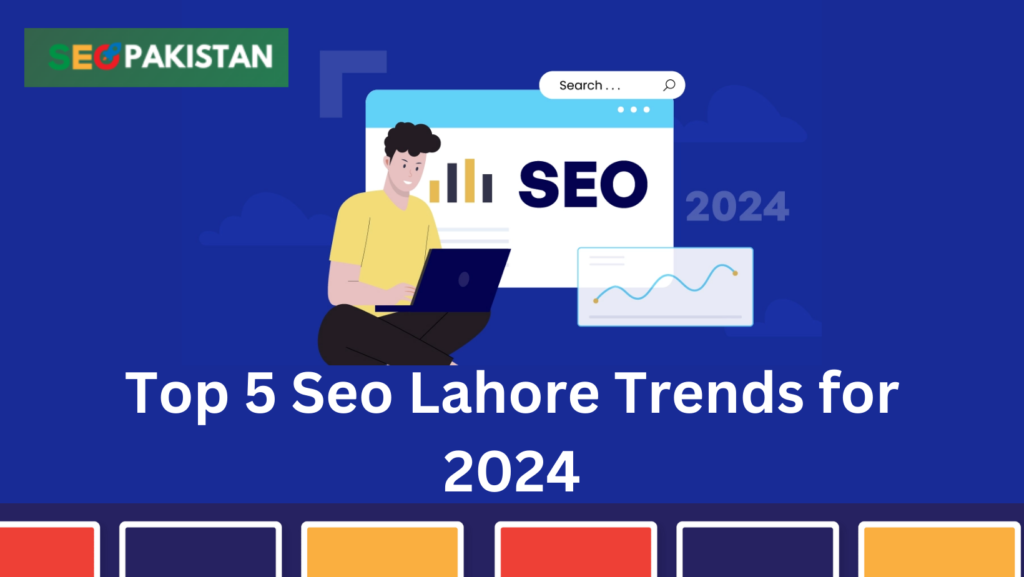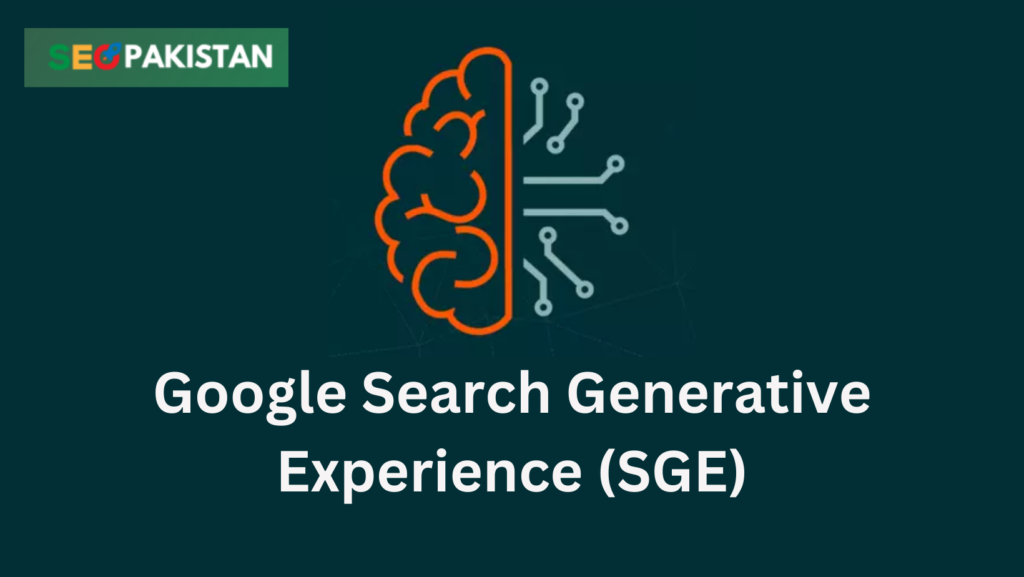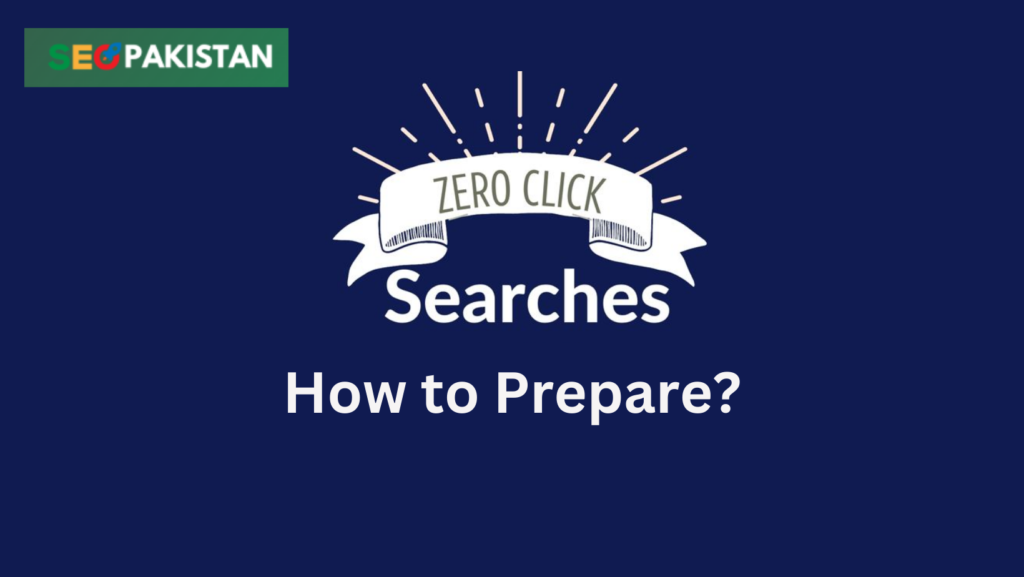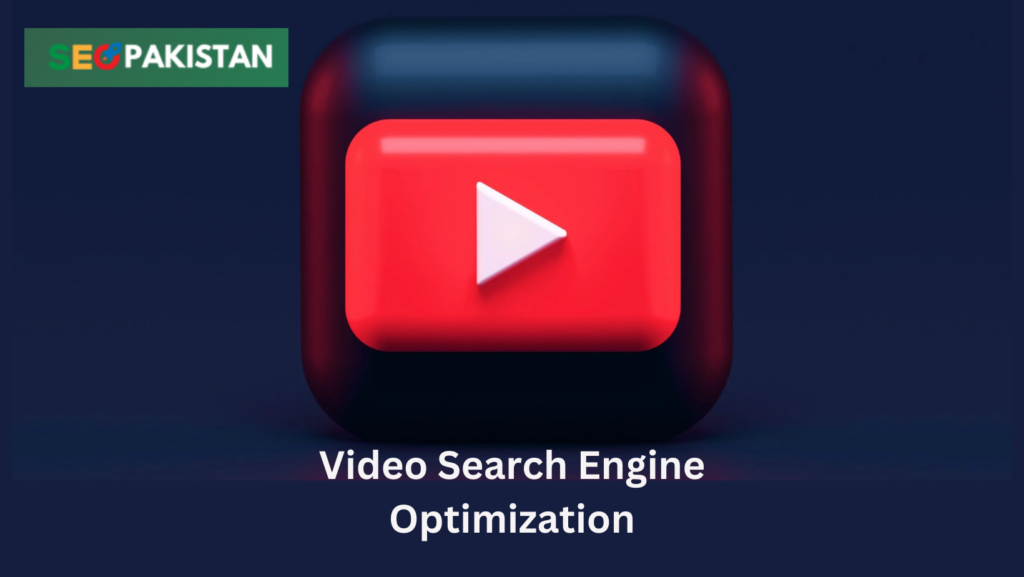In 2023, the landscape of SEO and content marketing underwent significant evolution, driven by the introduction of AI-generated content and various updates from Google to enhance the quality of search engine results pages (SERPs).

As we step into 2024, we anticipate even deeper integration of AI into SEO practices and content creation, alongside a heightened emphasis on high-quality content crafted by experts. Additionally, further advancements from Google, such as the Search Generative Experience (SGE), are expected.
Table of Contents (Seo Lahore Trends)
Google Search Generative Experience (SGE):
Google’s Search Generative Experience (SGE) represents a paradigm shift in search technology, leveraging AI to deliver search results directly atop SERPs. As SGE becomes more prevalent, it is poised to reshape user interaction with search engines and necessitate adjustments in optimization strategies for websites seeking to enhance impressions and get more traffic.

By furnishing succinct and relevant responses, accompanied by visuals and adopting a conversational tone, SGE enhances user engagement. It’s important to note that SGE isn’t akin to a chatbot; instead, it’s an AI-driven enhancement embedded directly within Google’s search functionality. Presently, this feature is accessible to a select audience in the U.S., exclusively in English.
This trend signifies a transition towards a more interactive and user-centric search experience, where algorithms adeptly comprehend and anticipate user intentions. Businesses are heavily investing in this technology, as evidenced by the booming artificial intelligence market, which is expected to surge to almost two trillion U.S. dollars by 2030.
How to Prepare?
Preparing for Google’s SGE involves adapting content strategies to align with its evolving parameters. While there isn’t a definitive method for optimizing content for SGE, focusing on providing comprehensive and direct answers to user queries remains crucial for maintaining relevance. The AI-generated content furnished by SGE typically includes links to pertinent resources and exhibits certain characteristics:
Opinion or analysis:
SGE seems to amalgamate information and analysis from diverse sources, emphasizing the importance of providing expert insights to improve online visibility & boost website performance.
Direct language:
Crafted content organized into sections, lists, and bullet points may facilitate better comprehension by SGE.
Topical or niche authority:
SGE appears to prioritize sites with niche or topical authority, underlining the significance of establishing authority in specific domains.
New or novel information:
Original data or analysis is often cited in SGE snapshots, highlighting the importance of publishing fresh insights rather than recycling existing information.
While integrating these factors into content strategies is advisable, it’s essential not to forsake traditional SEO practices. Despite the advent of SGE, traditional search results still feature prominently in SERPs, retaining their relevance in the SEO landscape. The extent to which users rely on SGE for query resolution remains uncertain, with many users likely to continue exploring traditional search results.
Zero-Click Searches:
The prevalence of zero-click searches, wherein users refrain from clicking on any displayed search results, is steadily increasing. As per the Semrush Zero-Clicks Study, a substantial portion of mobile (57%) and desktop (roughly a quarter) searches conclude without users clicking on either organic or paid results. Various reasons contribute to this phenomenon:

Local businesses or services:
Google often furnishes essential information like location, contact details, or business hours directly in the local or map pack, eliminating the need for further clicks.
Quick conversions or calculations:
For queries requiring swift conversions such as currency or measurement conversions, Google provides instant conversion tools within the SERPs.
Public or celebrity information:
Searches pertaining to public figures or celebrities often yield knowledge panels containing basic information like age, occupation, and notable works, obviating the necessity for users to click on additional links.
These instances frequently culminate in zero clicks as Google’s augmented SERP features, including knowledge panels and local packs, promptly fulfil user intent by presenting succinct and accurate responses.
How to Prepare?
Mitigating the impact of zero-click searches entails refining strategies to secure featured snippets for queries that typically result in no clicks. While numerous factors contribute to searches yielding no clicks, queries most affected often feature:
- Prominently featured snippets: Such as definitions or brief answers.
- Informational keywords are readily addressed by featured snippets.
Targeting these keywords may not directly increase traffic, but securing the coveted featured snippet position (“position zero”) positions your content prominently. This not only heightens the likelihood of clicks from users exploring the results but also enhances brand visibility. Establishing your brand as a recognized authority in the field fosters increased user trust and engagement, potentially leading to direct visits or future clicks.
Conducting a SERP analysis to identify queries featuring definition-featured snippets and subsequently targeting those keywords can be facilitated using tools like Semrush’s Keyword Magic Tool.
Additionally, diversifying marketing strategies to encompass channels beyond organic search proves beneficial. Leveraging alternative traffic sources broadens your reach, fosters engagement, and mitigates reliance solely on SERP-derived traffic.
Answer Engine Optimization (AEO):
The landscape of information retrieval is undergoing a transformation with the emergence of AI and chatbots, altering the dynamics of user searches. In response, Answer Engine Optimization (AEO) emerges as a critical strategy to adapt content and anticipate the future of local SEO.

AEO involves optimizing content specifically for answer engines, which are predominantly AI-driven platforms designed to provide conversational responses to user queries. These engines include entities like ChatGPT, Google’s SGE, and Microsoft’s Bing chatbot. As users gravitate towards chatbots, smart assistants, and voice search, the demand for instantaneous answers sans web page navigation escalates.
How to Prepare?
To prepare effectively, your team should devise an AEO strategy complementing traditional SEO approaches. AEO emphasizes tailoring content to answer-based inquiries, necessitating the creation of succinct, transparent, and easily digestible material for AI algorithms to incorporate into their responses.
One effective tactic is to adopt a robust Q&A format across your content, incorporating FAQs within articles and structuring long-form content around anticipated user queries in conversational searches. Utilizing tools like Semrush’s Keyword Magic Tool aids in identifying common questions and long-tail queries relevant to your business, facilitating the integration of these queries and corresponding answers into your content strategy.
Enhancing content visibility to answer engines involves several steps:
- Incorporating conversational keywords and phrases likely used in conversational searches.
- Structuring content to address common questions related to targeted topics.
- Formatting content in snippet-friendly styles such as bullet points, tables, or concise paragraphs.
- Implement schema markup to elucidate the context and content of your page for search engines.
Moreover, AEO encompasses optimizing content for SERP features highlighting direct answers, such as maximizing People Also Ask (PPA) opportunities as detailed in our study. While local SEO and AEO possess distinctions, aligning both strategies ensures sustained brand visibility and relevance amid the growing prominence of direct answers, voice search, and AI-driven social media platforms.
Focus on Topical Authority:
In the realm of SEO (search engine optimization), there’s a growing emphasis on showcasing expertise within specific topics, commonly known as topical authority. Establishing topical authority entails positioning oneself as a reliable source of comprehensive information on a particular subject or niche, ensuring that content thoroughly covers all aspects of the topic.

Search engines, notably Google, increasingly prioritize content that demonstrates authority, defined by a blend of experience, expertise, authoritativeness, and trustworthiness, encapsulated in the acronym “E-A-T.”
How to Prepare?
Preparing for topical authority necessitates a strategic approach to content creation and optimization:
- Develop authoritative, high-quality content across a specific topic, covering related subjects comprehensively.
- Curate a diverse content catalogue encompassing related topics and subtopics.
- Implement a user-friendly site architecture facilitating seamless navigation for users and search engine bots to explore relevant content throughout your website.
Utilize tools like Semrush’s Topic Research in your your hospitality seo process to identify core topics and subtopics within your niche, tailoring your content strategy with optimize meta tags accordingly. A comprehensive approach would integrate multiple suggested topics, ensuring thorough exploration backed by insights from subject matter experts (SMEs) to address user queries effectively.
Employing a topic cluster strategy enhances content organization, wherein thematically related pages or articles are interconnected through internal links. This ensures coherence and authority distribution across the topic cluster. Utilize the Site Audit tool to scrutinize and optimize your internal linking structure, guaranteeing effective interlinking within topic clusters to facilitate user navigation and authority distribution.
Video SEO or search engine optimization:
For marketing teams, harnessing the power of video content & Voice search seo to secure visibility in Google search results and on YouTube represents a significant opportunity. The escalating consumption of video content is evident as the global count of digital video viewers is forecasted to hit 3.78 billion by 2024, a trend not lost on search engines.

Wyzowl’s Video Marketing Statistics 2024 report underscores the pivotal role of video content in shaping the future of SEO, highlighting several key findings:
- 89% of users express a desire to see more videos from the brands they follow.
- A record-breaking 91% of businesses utilized video as an online marketing tool in 2024.
- 82% of individuals assert that watching a video has influenced their purchase decisions.
How to Prepare?
Before diving into video production, it’s imperative to formulate a robust video SEO strategy to optimize your chances of expanding your customer base and fostering business growth. While the allure of video content is undeniable, embarking on this endeavour without a well-thought-out plan can lead to lacklustre outcomes amidst burgeoning competition.
Leverage YouTube keyword research tools to identify and integrate relevant keywords into your video title, description, and tags, bolstering discoverability. Once armed with your target keywords, focus on enhancing your video production and distribution efforts with the following strategies:
- Utilize design tools like Canva to craft visually captivating thumbnails that entice viewers to click, thus boosting click-through rates (CTRs).
- Incorporate transcripts to ensure accessibility and segment your content with checkpoints for a seamless user experience (UX).
- Augment metadata and descriptions with your target keywords to facilitate swift comprehension by search engines, thereby improving your site’s ranking.
Is SEO (search engine optimization) still worth it in 2024?
Despite the evolving digital landscape, the significance of search engine optimization in 2024 remains undeniable. SEO serves as a linchpin in digital marketing endeavours, guaranteeing visibility in search engine results and driving organic traffic. While methodologies may evolve, the imperative to optimize for search engines endures, cementing the enduring value of SEO.
Therefore, preparing for the future of local SEO demands a strategic approach to online success, one that remains adaptable to consistent algorithmic changes and evolving user behaviours. If you want to rank first in search results, let’s connect with Seo Pakistan’s seo experts. As Lahore’s best seo company we follow all the latest SEO search engine optimization trends to achieve your goals. We offer affordable seo packages as compared to other seo companies.













